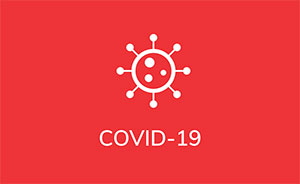Patients with chronic lymphocytic leukemia (CLL) and small lymphocytic lymphoma (SLL) are immunocompromised, meaning their immune system doesn’t work normally. For example, patients with CLL have impaired immune responses to vaccination and cannot make enough antibodies to fight off infections such as COVID-19. However, antibody levels are only one piece of the puzzle.
At the American Society of Hematology (ASH) 2021, our own Dr. Brian Koffman interviewed Dr. Jake Soumerai, a clinical investigator at Massachusetts General Hospital and an Assistant Professor at Harvard Medical School. They discussed some new research that looked at the immune response to COVID-19 vaccination in patients with CLL more comprehensively than just antibody levels.
Takeaways:
- Researchers will often measure antibody levels in the blood as a response to COVID-19 vaccines, but that doesn’t tell the whole story.
- Just having detectable antibodies is only a small piece of the puzzle because you don’t necessarily know if the antibodies are functional and whether functional T-cell responses accompany them.
- Even without an antibody response, it is possible for patients to still have a functional T cell response that can go after SARS-CoV-2.
- This study’s goal was to dive deeper into the immune response to COVID vaccination in patients with CLL.
- The study included 30 patients with CLL who were not on active therapy (25 treatment-naïve and 5 previously treated). So they were relatively healthy.
- After two doses of vaccine, 18 out of 30 patients (60%) developed SARS-CoV-2 antibodies.
- After two doses, patients who did not have an antibody response were offered a third dose.
- Of those, 6 out of 11 patients (55%) achieved an antibody response after the third dose.
- The antibodies produced by patients in this study were functional.
- 80% of patients developed functional T-cell responses after vaccination, and the rate of functional T-cell response was similar for those who did not achieve an antibody response.
Conclusions:
This study provides a reason for optimism because it shows that patients with CLL can generate functional immune responses to mRNA COVID vaccines. A negative antibody test does not necessarily mean there is no response to the vaccine. It means we can’t measure the antibodies using this one tool, but there might be other functioning immune responses that develop.
The paper states, “We also demonstrated that 80% of tested patients with CLL developed functional spike-specific T-cell responses, including 78% of patients with CLL without detectable spike antibodies.” This included many on drugs like rituximab and obinutuzumab, which could be excellent news.
If you want to learn more, the full report has detailed information you can dive into. Please enjoy this interview with Dr. Soumerai from the ASH meeting, which was held in December 2021 in Atlanta, GA.
You can read the full report here: Humoral and cellular immunogenicity of SARS-CoV-2 vaccines in chronic lymphocytic leukemia: a prospective cohort study.
Take care of yourself first.
Ann Liu, PhD

















